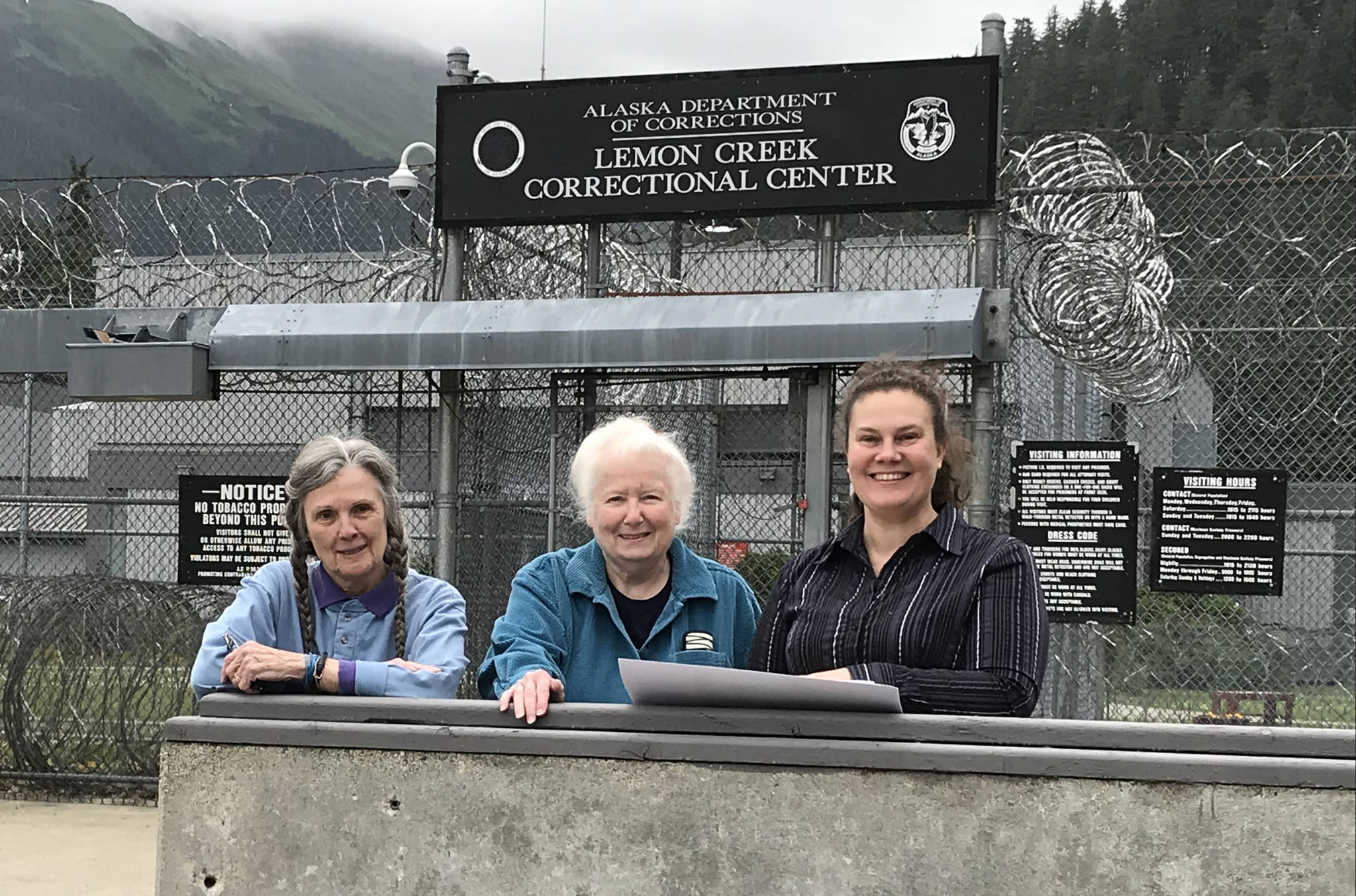The Alaska Division of Elections and the League of Women Voters have a plan to boost voter registration ahead of this fall’s elections.
But first, they’re going to prison.
On July 10, two volunteers from the Juneau chapter of the League of Women Voters visited Lemon Creek Correctional Center with Charity Coleman of the Alaska Division of Elections to allow inmates to register for this fall’s elections and request absentee ballots.
“We didn’t know if we’d see one or none or 30 or whatever,” said carolyn Brown, one of the volunteers.
They ended up talking to three men, one of whom needed an absentee ballot.
It was a small turnout, but it was a significant demonstration by both the league and the division, which are trying to reach a relative handful of residents not already registered under existing programs.
“I think even if we touch one person, it’s worth that,” said Lauri Wilson, elections supervisor for Southeast Alaska.
Thanks to the new PFD voter registration program and the longtime efforts of groups like the League of Women Voters, the vast majority of Alaskans who can vote are already registered.
According to state figures, Alaska had 541,821 registered voters on July 3. There are about 548,000 Alaskans who are 18 or older, according to the Alaska Department of Labor.
The biggest gaps are on the fringes: Teenagers turning 18 and felons finishing their punishment.
Under the Alaska Constitution, a felon convicted of a crime involving “moral turpitude” loses his or her right to vote until their sentence is over. (That includes probation, too.) When that person is unconditionally released, they’re eligible to vote again but aren’t automatically registered — they have to re-register.
Alaska isn’t alone in that law: 20 other states treat felons that way.
Brown said there’s a common belief that everyone in prison is a felon and cannot vote.
“That’s not true,” she said.
Alaska’s prison population includes people who are awaiting trial and have not yet been convicted.
“Those people are eligible to vote. They’re plenty eligible to vote for an absentee ballot,” she said.
Alaska’s chapter of the League of Women Voters has long championed the idea that the state should allow convicted felons to vote (Maine and Vermont do), but allowing that would require a constitutional amendment, and no proposal has seriously advanced.
Earlier this year, representatives of the Division of Elections traveled to Colorado to examine that state’s vote-by-mail program. While in Colorado, the division also learned about the state’s “confined voter program,” which allows eligible inmates to register and vote.
Brown credits Division of Elections director Josie Bahnke for bringing the idea back to Alaska, and given the League’s history, it was happy to help with a trial run in both Juneau and Fairbanks.
Brown said the experience was eye-opening; while not many inmates registered to vote, it was worth hearing their stories and their experiences. She said she was particularly struck by the state of the Lemon Creek library, which could use some additional material.
“You never know when somebody’s little lightbulb is going to go on,” she said of the effect of reading.
As for the voter program, Wilson said the state is interested in returning to the prison before the November general election.
“I would go back in a heartbeat if we could set up some routine,” Brown said. “It’s an incredible challenge, but somebody’s got to do it, and it’s worth doing.”
• Contact reporter James Brooks at jbrooks@juneauempire.com or 523-2258.

